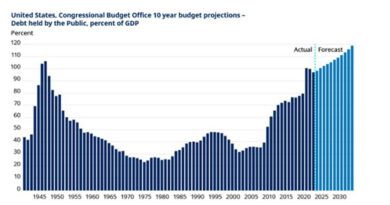Slow move towards online auctions offers simpler way to transact
With little concrete information available, CEO of Galetti Corporate Real Estate John Jack believes that around 5% of real estate sales in South Africa are transacted using online bidding platforms, but given the growing popularity, one could extrapolate to up to 25% in the next five years, he says. “Influenced by Covid-19, the current market has led many industries online and auction is one of them, breaking down previous perceptions of transacting digitally.”
|
John Jack, CEO of Galetti Corporate Real Estate |
As per the South African Professional Auctioneers Association (SAPAA), online auctions are defined as the competitive marketing and disposal of goods/assets conducted on an internet-based platform for a pre-determined period with each lot sequentially closing at a given time.
“The most significant difference is that prospective buyers can bid from the comfort of their home or offices – anywhere in the world. This opens the process up to the overseas market and gives embattled landlords access to a wider pool of prospective buyers.”
“The stability of the online auction infrastructure plays a crucial role. The online system acts as an invisible auctioneer, able to regulate bidding increments and the entire bidding process as buyers continue to bid against each other,” adds Jack.
Like traditional in-person auctions, bid prices are updated in real-time and the highest bidder is announced at the end of each auction.
Comparing apples and oranges
When comparing online auctions to traditional commercial property sales, Jack believes that each of these avenues still has their place and that the route to market should be deliberated on a case-by-case basis.
“Mass exposure, a ‘quick’ transaction, transparency, qualified buyers and competitive pricing are key factors for auction. Alternatively, if the seller wants to keep the asset ‘off-market’, then a private treaty is best,” he adds.
“Alternatively, when there is a premium asset with a clear demand, a sealed bid model is often preferred because it offers the best of both worlds. With significant confidentialities in place, pre-qualified bidders are invited to submit offers for the property or portfolio of properties. This often ticks the boxes for listed entities who wish to transact confidentially without raising the concern of the market before an official Sens announcement.”
While Jack believes that there will always be a place for traditional commercial property sales, Galetti recently launched its own online platform, Galetti Auction Division, as an additional route to market for clients.
The auction market is currently dominated by a few key players with only two of those successfully operating in the online space. “Our track record has largely been in the private treaty and sealed bid space with transactions totalling in the billions, moving online was simply to satisfy client demand for the service as well as the ability to scale the sales operation of the business,” says Jack.
Online auction myth-busting
When some people think of online auctions, they think of ‘foreclosure’, says Jack. The term foreclosure is used to describe a legal process in which a lender attempts to recover the balance of a loan from a borrower who has stopped making payments. The asset is then used as collateral. However, there are many other reasons why an owner might choose to sell a property on auction.
Jack dispels four commonly held online auction myths:
1. Bidders are not qualified and are in the room to simply kick the tyres. “Important to remember is that the potential bidder pays a registration fee to be part of the online auction; this means that they are serious about purchasing.”
2. Buyers can’t view properties that are being auctioned online, in-person. “In most cases, if you are legitimately interested in purchasing a particular property up for sale, you will be invited or be able to make an appointment to visit the property prior to the auction itself. This is particularly evident when purchasing commercial property as prices can range from R10m plus.”
3. Sellers must accept the winning bid. “Working strategically with your auction broker and setting a strategic opening bid should help to ensure that the property sells for fair market value. Prior to the auction, your broker will work with you to determine a reserve price (the minimum price for which the property can be sold for) and this is typically not disclosed to buyers. Just in case, most brokers will advise that sellers set the winning bid as ‘subject to confirmation’, meaning that the seller still has the right to reject the winning bid.”
4. Auctioneers compete against traditional commercial real estate brokers. “Every property is different, and real estate brokers understand that not every property can, or should be sold the same way. Auctions are also useful to property brokers in that if they have struggled to sell a property using traditional means, this can be an effective way to reposition it, ensure a fast sale and find a fresh pool of buyers.”
Source: bizcommunity.com

